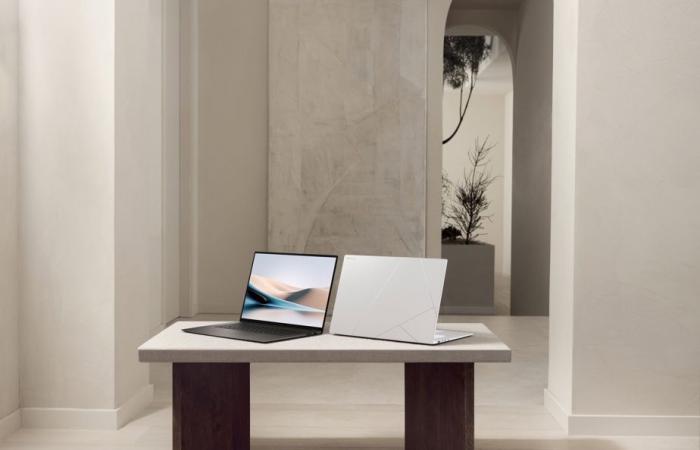In May, Microsoft created a category of personal computers called “Copilot+ PCs”: increased performance, all-day battery life, and above all, deep integration of Microsoft’s generative AI. Their sales, to date, disappoint everyone. What’s wrong?
Posted at 3:29 a.m.
Updated at 7:00 a.m.
Part of the answer was provided by Microsoft at the end of October, when it published its quarterly results. Basically, PC manufacturers have failed to put products on the shelves that attract consumers. While almost all of Microsoft’s divisions are growing strongly, the one focused on the sale of the Windows system has plateaued since the end of 2022.
False start
Windows 11, despite the introduction of the Copilot AI assistant, and its new PCs, despite the addition of a Copilot key to their keyboard, are not taking off as expected.
Microsoft is pointing the finger at consumers. Many purchased a brand new PC between 2020 and 2021, to telework during the COVID-19 crisis. Sales jumped. Eight quarters of decline in these same sales followed, in 2022 and 2023, to reach a roughly stable level this year. But consumers are not fooled: they will not replace their brand new PC to add a Copilot key to the keyboard…
However, the arrival of generative AI was expected to revive demand.
A year ago, analysts predicted that 2024 would be the year of the “AI PC,” the “AI phone,” and just about anything else that could be enhanced by generative AI like OpenAI’s ChatGPT. That didn’t happen.
Microsoft’s revenue from Windows has been declining since the start of the year, and it will likely only be up 2% by Christmas.
Microsoft could also look in the mirror. The most interesting new feature of Copilot on Windows is a function called “Recall”, which should record every movement you made on your PC. “With Recall, you get a browsable history of everything you’ve done on your PC,” the company explains on its site.
Expressed this way, we immediately see how it can raise questions regarding confidentiality. It’s also technically a bit complicated. So much so that the addition of Recall to Copilot was postponed until the end of last summer. It has just been delayed again, this time to December. There is no guarantee that this will happen.
Golden Heavy
Microsoft squandered the lead its AI had over Apple’s, which is entering the market these days. Qualcomm did not take advantage of the summer and the late arrival of Intel chips, until then inseparable from Windows, to assert itself.
This fall, Intel is back with its new generation of Core Ultra processors. We see that Intel is catching up on Qualcomm, and also on AMD, by leafing through the catalog of the Asus brand, one of the first to sell Copilot+ PCs with Acer, Dell, JHP, Lenovo and Samsung (in addition to Microsoft).
Earlier this summer, Asus launched its most elegant laptop to date, the Zenbook S. This fall, new is its 14-inch OLED screen variant powered by the new Intel Core Ultra chips capable of perform up to 120 trillion (120 trillion) operations per second (TOPS). Its price, which ranges between $1,800 and $2,200, is high, but its technical specifications are a dream: 1.1 cm thick, 1.2 kilos, 32 GB of RAM, 1 TB of storage, 4 ultra-fast USB ports, WiFi 7 , Harman Kardon sound system… The whole thing!
Except, there you go. This paragraph alone explains the failures of the Copilot+ PCs: first of all, who knows what 1 TOPS represents, or 1 billion operations per second?
And is 120 TOPS worth $2100? Not five years ago, the average price of a laptop was less than $800!
The people who design processors at Intel and elsewhere are engineers. Most of the people who program Windows are engineers. In the vast majority of cases, the buyers of these PCs are not. Many don’t have the salary of an engineer either. A PC selling for two to three times the price of the one they bought two years ago doesn’t seem so attractive to them. A Copilot+ PC devoid of its most original function, even less.
It’s a shame for PCs like the superb Asus Zenbook S, but the Copilot+ PCs have clearly missed their comeback.






